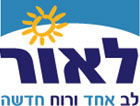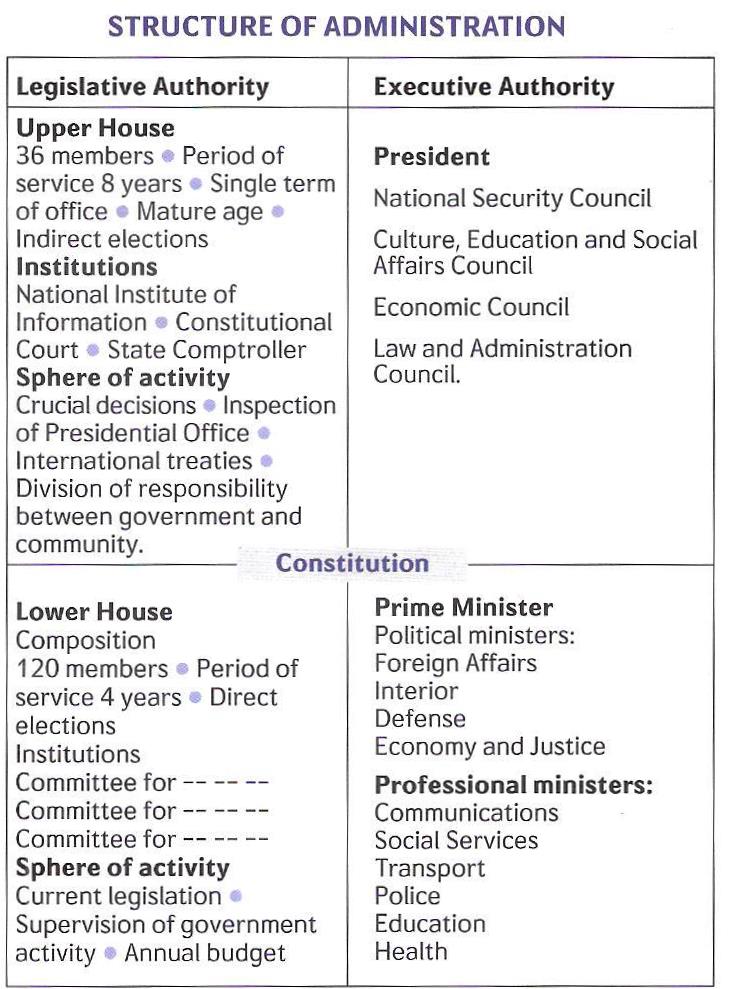dynamic leadership
Legitimate governments must adopt respectable principles, and promote an honest, gifted and dynamic leadership. Leaders must learn from experience, accept responsibility, work under pressure if necessary, and commit themselves to advancing the good of society. This will only happen if politicians are accountable for their actions.
Politicians must be prevented from squandering funds and advancing their protégés. Politics will nevertheless remain the scene of contention between sectional and private interests. We must therefore separate institutions dealing with social and sectional problems, from those addressing matters of principle and long-term issues.
To do this, we propose a government on the following basis:
The Executive Authority will consist of the Presidency and the Government. The President will deal with national policy and long-term issues, the Government with the country's general administration.
The President, chosen in a general election, will be served by the following four councils: 1) The national security council, 2) the council supervising cultural activities, education and social issues, 3) the council in charge of economic policy, 4) the legislative and administrative council. The President will appoint the Prime Minister, who will select his ministers.
The Government must find the right balance between its political and professional interests. It will consist of: 1) a limited cabinet consisting of the ministers of foreign, interior, defense, financial, and judicial affairs, and 2) a larger cabinet of professional ministers. Those of the former will be chosen largely from among the political leadership, the latter mainly from the government and public sectors.
The Parliament will consist of an Upper and a Lower House.
The Lower House will deal with legislation, supervise government activity and determine the budget. Members will be chosen in general and proportional elections. Those of the Lower House, representing the various sections of society, will serve long enough to gain proficiency, without thereby becoming "irreplaceable".
The Upper House will deal with general policy, social and legislative issues, international treaties and long-term government loans, supervise government institutions and the division of responsibilities between the government and communal authorities. Membership will not exceed forty. The public will elect members of this House indirectly on a personal basis. Members will be over a minimum age, and suspend all previous political and business commitments. After serving for one extended period, they will not qualify for any other political appointment. Israel's constitution, endorsed by referendum, will determine the functions of the communal bodies, of the president, the government, and the Upper and Lower Houses. An Upper House judicial commission will interpret Israel's constitution. The government, a large number of citizens, or a referendum can introduce changes into the constitution. An Upper House commission supervising the activities of public representatives will outline basic rules of conduct.

